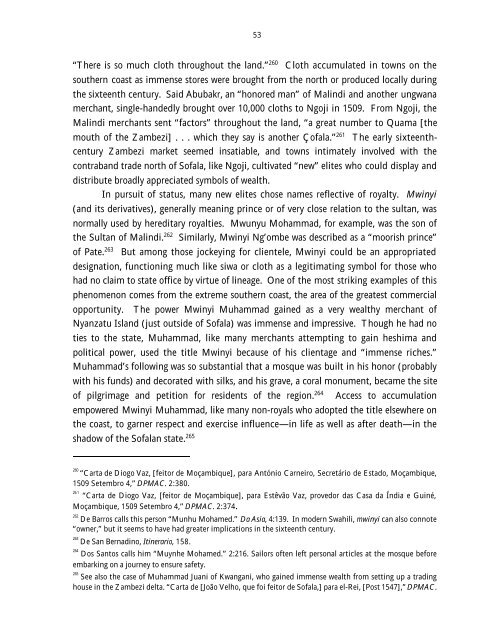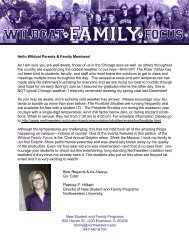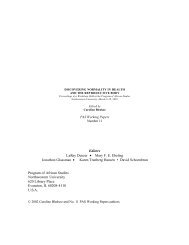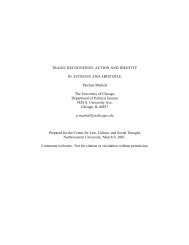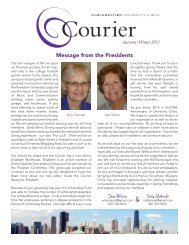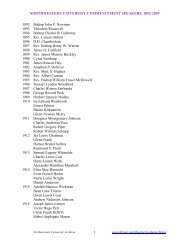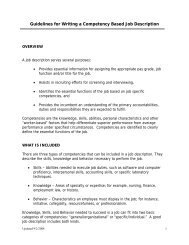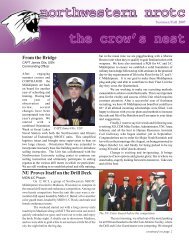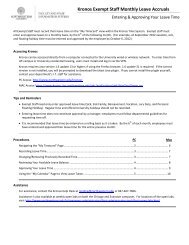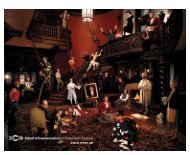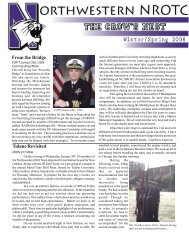Artistry Permits and Custom May Ordain - Northwestern University
Artistry Permits and Custom May Ordain - Northwestern University
Artistry Permits and Custom May Ordain - Northwestern University
Create successful ePaper yourself
Turn your PDF publications into a flip-book with our unique Google optimized e-Paper software.
53<br />
“There is so much cloth throughout the l<strong>and</strong>.” 260 Cloth accumulated in towns on the<br />
southern coast as immense stores were brought from the north or produced locally during<br />
the sixteenth century. Said Abubakr, an “honored man” of Malindi <strong>and</strong> another ungwana<br />
merchant, single-h<strong>and</strong>edly brought over 10,000 cloths to Ngoji in 1509. From Ngoji, the<br />
Malindi merchants sent “factors” throughout the l<strong>and</strong>, “a great number to Quama [the<br />
mouth of the Zambezi] . . . which they say is another Çofala.” 261 The early sixteenthcentury<br />
Zambezi market seemed insatiable, <strong>and</strong> towns intimately involved with the<br />
contrab<strong>and</strong> trade north of Sofala, like Ngoji, cultivated “new” elites who could display <strong>and</strong><br />
distribute broadly appreciated symbols of wealth.<br />
In pursuit of status, many new elites chose names reflective of royalty. Mwinyi<br />
(<strong>and</strong> its derivatives), generally meaning prince or of very close relation to the sultan, was<br />
normally used by hereditary royalties. Mwunyu Mohammad, for example, was the son of<br />
the Sultan of Malindi. 262 Similarly, Mwinyi Ng’ombe was described as a “moorish prince”<br />
of Pate. 263 But among those jockeying for clientele, Mwinyi could be an appropriated<br />
designation, functioning much like siwa or cloth as a legitimating symbol for those who<br />
had no claim to state office by virtue of lineage. One of the most striking examples of this<br />
phenomenon comes from the extreme southern coast, the area of the greatest commercial<br />
opportunity. The power Mwinyi Muhammad gained as a very wealthy merchant of<br />
Nyanzatu Isl<strong>and</strong> (just outside of Sofala) was immense <strong>and</strong> impressive. Though he had no<br />
ties to the state, Muhammad, like many merchants attempting to gain heshima <strong>and</strong><br />
political power, used the title Mwinyi because of his clientage <strong>and</strong> “immense riches.”<br />
Muhammad’s following was so substantial that a mosque was built in his honor (probably<br />
with his funds) <strong>and</strong> decorated with silks, <strong>and</strong> his grave, a coral monument, became the site<br />
of pilgrimage <strong>and</strong> petition for residents of the region. 264 Access to accumulation<br />
empowered Mwinyi Muhammad, like many non-royals who adopted the title elsewhere on<br />
the coast, to garner respect <strong>and</strong> exercise influence—in life as well as after death—in the<br />
shadow of the Sofalan state. 265<br />
260 “Carta de Diogo Vaz, [feitor de Moçambique], para António Carneiro, Secretário de Estado, Moçambique,<br />
1509 Setembro 4,” DPMAC. 2:380.<br />
261 “Carta de Diogo Vaz, [feitor de Moçambique], para Estêvão Vaz, provedor das Casa da Índia e Guiné,<br />
Moçambique, 1509 Setembro 4,” DPMAC. 2:374.<br />
262 De Barros calls this person “Munhu Mohamed.” Da Asia, 4:139. In modern Swahili, mwinyi can also connote<br />
“owner,” but it seems to have had greater implications in the sixteenth century.<br />
263 De San Bernadino, Itinerario, 158.<br />
264 Dos Santos calls him “Muynhe Mohamed.” 2:216. Sailors often left personal articles at the mosque before<br />
embarking on a journey to ensure safety.<br />
265 See also the case of Muhammad Juani of Kwangani, who gained immense wealth from setting up a trading<br />
house in the Zambezi delta. “Carta de [João Velho, que foi feitor de Sofala,] para el-Rei, [Post 1547],” DPMAC.


